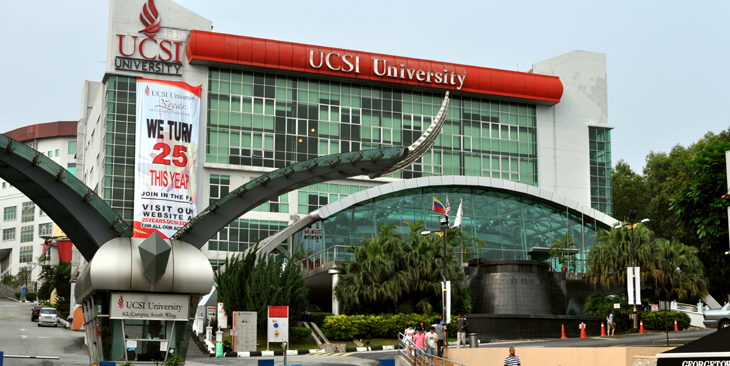Study in Hungary
The Ultimate Guide to Studying in Hungary
We have created a guide to getting into a Hungarian college or university to help you navigate through each step and provide you with tips along the way.
Home / Study in Hungary

Interested in studying abroad?
Share your details & our experts will call to discuss your goals
Hungary is one of the European countries that has invested a lot into higher education, and the results are noticeable. If you’re looking to study at a university in Hungary, you will find several study opportunities with strong academic programmes and a vibrant student life.
With low tuition and living costs, it’s easy to understand why. But that’s not all! Universities in Hungary also have a long history of providing quality education, the oldest institution being established as early as 1367.
Why study in Hungary?
1. Affordable study programmes
As an international student, you’ll pay between 1,200 and 5,000 EUR per year for most study programmes at public universities. Only Medicine and Dentistry degrees can cost as much as 16,000 EUR per year.
2. Scholarships are available
You can further reduce your expenses by applying to one of the scholarships available in Hungary. Check if you meet the criteria, submit the necessary documents or letters, and fingers crossed!
3. Explore Hungary’s rich history and impressive buildings and monuments
Hungary is a beautiful country. While living and studying here, you should visit the Buda Castle, the Hungarian Parliament building, the Fisherman’s Bastion, the Széchenyi Thermal Bath, St. Stephen’s Basilica, the Heroes’ Square, the Széchenyi Chain Bridge, etc.
Which universities to attend in Hungary?
The following are some of the best Hungarian universities you should consider for your studies:
- University of Pécs
- University of Szeged
- University of Miskolc
- University of Debrecen
- Budapest University of Technology and Economics
What is it like to study in Hungary?
The higher education system in Hungary is very similar to what you’d find in other European countries. While you can study almost any discipline you can think of, remember that larger universities have a wider range of options than smaller colleges. There are also Joint Degree programmes, for those ambitious enough to tackle two degrees at the same time.
One important thing to mention is that certain disciplines — Medicine, Architecture, Dentistry, Pharmaceutics, Law — combine Bachelor’s and Master’s courses into a single programme, which normally takes 5 or 6 years to finish.
What to study in Hungary?
There are plenty of English-taught degrees from which you can choose. To get you started, these are some of the most popular options:
- Engineering degrees in Hungary
- Business degrees in Hungary
- Humanities degrees in Hungary
- Medicine degrees in Hungary
- Music degrees in Hungary
What foreign students have to say about studying in Hungary
Erká, Mongolia
“Studying in Hungary is a good choice considering its central location in Europe, thanks to which it is easy to travel around the continent.”
Khulan, Mongolia
“Mongolian research laboratories are not as well equipped as those in Hungary, and the quality of education is also very high here. I am a PhD student and I received a lot of help from my professor, who provided me with all the necessary courses that I can increase my knowledge with. There are also a lot of opportunities to publish in Europe or to attend conferences where I can test the results of my research.”
Ambuj, India
“I have to mention the positive energy of Hungarian people. It surrounds me everywhere. It is the kind of positivity that makes you feel so motivated every day when you get up, look forward to the day and feel content when you go to bed at the end of the day.”
How to apply
Each university in Hungary has its own admission system on their website that allows future students to apply for and enrol in their Bachelor’s or Master’s degree programmes. So, once you select the university of your choice, you can go through their application and submit your materials there.
Here are some documents you might need to submit during your university application in Hungary:
- A scan of your diploma (high school or Bachelor’s degree)
- A transcript/record of your previous courses
- A scan of your passport and/or birth certificate
- Your CV
- Testing scores
- Evidence of scholarship or funding
- Letters of recommendation (2 or 3)
- Portfolio and/or writing samples
Helpful ways to make sure you qualify for a Hungarian university
Take preparation courses
This kind of courses enable degree-seeking students to get an extra educational boost just before they start their Master’s degree or other post-graduate degree programmes.
Try a pre-MBA, pre-Law, or pre-Medicine programme, as well as any other foundation or preparation courses that will allow you to study in the degree programme of your choice.
Improve your English through an English-language prep course
If you’re attending a degree programme in Hungary, you will need to prove that your language skills are good enough to participate in the classes and understand the lectures. These courses will also prepare you for any of the English-language tests that universities require.
English-language tests
To study in Hungary, you’ll need to provide proof of your English language proficiency. The certificates generally accepted by Hungarian universities are:
- PTE Academic
- TOEFL iBT
- IELTS Academic
- C1 Advanced or C2 Proficiency
Still, you should always check your university’s website to be sure what the exact requirements are.
Living in Hungary
Formalities
Since December 21, 2007, Hungary has been a member of the Schengen Area, and applies the Schengen legislation in full. The most important issues to Hungary’s Schengen membership are:
- visas and residence permits issued by one of the Schengen States are valid for Hungary,
- visas issued by Hungarian representations abroad and residence permits issued by Hungarian national authorities are also valid for the entire Schengen Area.
Third-country nationals are required to have a visa for entering the territory of Hungary and also for a stay of up to 90 days within a 180-day-period if they come from a country that is under visa obligation according to the Schengen acquis.
It is worth checking to see if your country has a bilateral agreement with Hungary, because in this case there is no need for a visa. If not than you are required to have a visa for entering the territory of Hungary and also for a stay of up to 90 days within a 180-days period if they come from a country that is under visa obligation according to the Schengen acquis.
The visa application has to be submitted to the Hungarian Consulate in the country where the permanent or temporary residence of the applicant is located or in the country of the applicant’s nationality. If you arrive from a third country, we recommend taking out health insurance.
Tuition fees
Public universities in Hungary are much more affordable when compared to similar institutions in Western countries. International students usually pay:
- 1,200–5,000 EUR/year for most degrees
- 12,000–16,000 EUR/year for Medicine and Dentistry degrees
Tuition fees at private universities can be even more expensive.
Read more about tuition fees and living costs in Hungary.
Accommodation in Hungary
There are several kinds of accommodation alternatives in Hungary:
Dormitory
The cheapest one should be a dormitory belonging to the students’ homes section of the university you attend. One advantage is that it is cheap (28–84 EUR or 10,000–30,000 HUF/month), it is an easy way of making friends and of establishing a social community fast.
If you decide to go with this more affordable type of housing, then you should act fast because the dormitory places are limited and vary from university to university. Check the application deadlines and methods before your arrival not to miss it.
Private dormitory
There are also so-called private dormitories in some Hungarian cities (110–140 EUR or around 40,000–50,000 HUF/month) which do not belong to a university or a college. These are not so cheap as the institutional ones, but you can still spare some money through this way compared to private flats or rooms. It can be a plan B.
Flat and private room
On the other hand, renting an apartment or a room in flat is a more feasible option if you prefer privacy. The costs depend much more on the fact in which city you are renting, there can be big differences between fees when it comes to Hungarian cities. The average cost is about 280 EUR (100,000 HUF) per flat, and about 140–195 EUR (50,000–70,000 HUF) per room.
Communication
There are plenty of possibilities to access the Internet in Hungary. To help you check your e-mail or surf the net Wi-Fi access is offered in many cafés, hotels, bookstores and public buildings. Almost every university campus has its own Wi-Fi hotspots.
Hungarian cuisine
Hungarian cooking is actually quite difficult to define. It frequently uses paprika, black pepper and onion. Potatoes are also commonly used in many types of meal. There are two remarkable elements of Hungarian cuisine that locals take no or little notice of but which seem quite unusual to foreigners.
One is known as “f”ozelék” (various vegetables prepared in a special way, served cooked and bearing some similarity to a very thick soup) and the other one is soup itself prepared in different kinds of ways. Hungarian cuisine offers a bunch of soups from vegetables or meats or both. These soups come in creamy types, as fresh fruit soups and also as heavy meat soups.
Hungarian culture
If you want to enjoy Hungarian culture, rich cultural life awaits you in every town, especially in the capital.
- Cinema – Besides Hollywood movies, Hungary offers a wide selection of art films from all over the world. You can choose from various films, dubbed or subtitled, depending on your knowledge of foreign languages.
- Theatre – There is a very rich and active theatre life throughout the country. The season starts in September and ends in May. To be on the safe side, you should book your tickets well in advance for the play of your choice.
- Classical ballet and contemporary dance are both widely appreciated in Hungary. If you like dance, you should not miss the performances of Gy”ori Balett (Gy”or Ballet) or Pécsi Balett (Pécs Ballet), or those performed by the ensemble led by Pál Frenák or Yvette Bozsik. Going to the Opera House at least once is a must. Not just because of the imposing building itself, but also for the high-quality performances.
- Museums and Art Galleries – The best places to learn about Hungarian culture, art and history are exhibitions. Museums are open from 10 am to 6 pm, and are usually closed on Mondays. If you use your student ID, you will be entitled to a discount from the ticket price.
Your costs of living in Hungary
Calculate your living costs! Select your city, to see your financial options on accommodation, food, recreation and transport.
Here’s a breakdown of other average living expenses in Hungary:
- food & groceries: 115–130 EUR/month
- monthly utilities (for private rent): 40–60 EUR/month
- monthly transport pass: 11 EUR
- recreation and entertainment: 20–35 EUR/month
About Hungary
Official name: Hungary
Area: 93,030 square km
Population: 9,830,485
Neighbouring countries: Austria, Slovakia, Ukraine, Romania, Serbia, Croatia, Slovenia
Official language: Hungarian
State form: Republic
Capital and largest city: Budapest (population: 1 700 000)
Other large cities: Debrecen, Miskolc, Szeged, Pécs, Gyor
Currency: Forint (HUF)
Time zone: CET (GMT +1)
Major rivers: River Danube (417 km), River Tisza (597 km)
Largest lakes: Lake Balaton, Lake Velence
Highest point above sea level: Kékes (1014 m) in the Mátra Hills
Hungary is a member of OECD, NATO, EU and a Schengen state. Administratively, Hungary is divided into 19 counties with the capital city of Budapest being independent of any county government.
Hungary is among the top tourist destinations in Europe with the capital Budapest regarded as one of the most beautiful cities worldwide. Despite its relatively small size, the country is home to numerous World Heritage Sites, UNESCO Biosphere Reserves, the second largest thermal lake in the world (Lake Hévíz), the largest lake in Central Europe (Lake Balaton), and the largest natural grassland in Europe (Hortobágy).
The official language of the country is Hungarian, which forms part of the Finno–Ugric language family. Hungarians call their language magyar. Although Hungary is located in Central Europe, Hungarian is not related to any of the languages that surround the country. Hungarian is spoken by 10 million people in Hungary, and cca. by 4-5 million more people outside of the country.
Did you know…?
- Hungaricums are high value products of Hungary, which show Hungarian uniqueness, specialty and quality, they embody the top performance of the Hungarian people.
- Hungary has 16 Nobel laureates. Or are you interested in Franz Liszt, Charles Simonyi, Paul Erdos, Erno Rubik or Katinka Hosszú?
- Two-thirds of Hungary’s geographic area is less than 200 metres above sea level.
- Today Hungary has eight locations on the World Heritage List and three items on the Representative List of Intangible Cultural Heritage of Humanity.
- There are big differences in temperature between our four seasons: summers are hot, while winters are cold. Average temperatures range from -1 °C in January to 21 °C in July.
- Lake Balaton, covering 598 square km., is one of the biggest tourist attractions of the country. The average depth of the lake is two to three metres, so the water warms up quickly in summer.
- There are ten national parks in Hungary.
- Hungarian history in the Carpathian basin is dated back to the Hungarian conquest in 896.
- The Hungarian crown was given to Saint Stephen by the Pope on the occasion of his coronation at around 1000.
- There are also sizable populations of Hungarian speakers in Romania, the Czech Republic, Slovakia, Serbia, Ukraine, Israel, the U.S., and Australia. Smaller pockets of Hungarian speakers also live in Canada, Croatia, Slovenia and Austria.
Find courses that fit your needs in USA
Get the necessary training and develop skills to be job-ready

Bachelor of Education (Teaching of English as a Second Language – TESL)

Bachelor of Psychology (Honours)

BSc (Hons) Food Science With Nutrition

Bachelor of Islamic Studies (Hons)

BSc (Hons) Forensic Science

Testimonials

A big thank you to Creative Consultancy for helping me join APU for a BSc (Hons) in Information Technology, November 2023 intake. Their guidance was top-notch!

Samear Rahman Khan
Malaysia
Creative Consultancy made my journey seamless as I pursued a Bachelor of Computer Science (Hons) (Intelligent Systems) at APU in September 2023. Highly recommend their services!

Hasibul Islam
Malaysia
Thanks to Creative Consultancy, I successfully enrolled at Manipal University College Malaysia (MUCM) for MBBS, October 2023 intake. I couldn’t have done it without their expert assistance.

Samia Siraj
Malaysia
Creative Consultancy Blogs
Dive in to stay updated on the latest international education trends and job opportunities
FAQs
What is overseas education?
Overseas education is leaving your home country and going abroad to pursue further education. Through overseas education, you can avail of long-term degree courses as well as short-term certificate courses to learn a language or upskill yourself.
How to get a scholarship to study abroad?
If you are aiming to study abroad, identify your career goals, look for relevant courses and universities abroad, know the tuition fees and other expenditures, prepare well for the entrance exams, apply to shortlisted universities, accept the offer letter from the desired university, apply for a student visa and get ready to jet off!
How to study abroad?
The best way to study abroad for free is to avail of full-funded scholarships or university grants. The fully-funded scholarships are typically awarded to students who excel in academics or extracurricular activities and cover their tuition fees, travel expenses, accommodation, and other living expenses.
How to study abroad for free?
To get an education loan for studying abroad, you need to have the admission offer letter from the university and fulfill the eligibility criteria for securing the loan. In order to get an education loan at the best rate of interest, seek guidance from a reputed study-abroad consultant.
How to get an education loan for studying abroad?
Choose to study abroad to leverage better learning opportunities, see the world, meet new people, boost your resume, develop a broader perspective, become culturally competent, and avail yourself of lucrative job opportunities globally.
Why study abroad?
Choose to study abroad to leverage better learning opportunities, see the world, meet new people, boost your resume, develop a broader perspective, become culturally competent, and avail yourself of lucrative job opportunities globally.
How to go abroad for studies?
The best way to go abroad for studies is to get in touch with reputed study-abroad consultants. They can help you explore courses aligned with your academic interests, guide you in preparing for entrance exams, help you with university and student visa applications, and even provide post-arrival assistance.
Interested in studying abroad?
Share your details & our experts will call to discuss your goals









